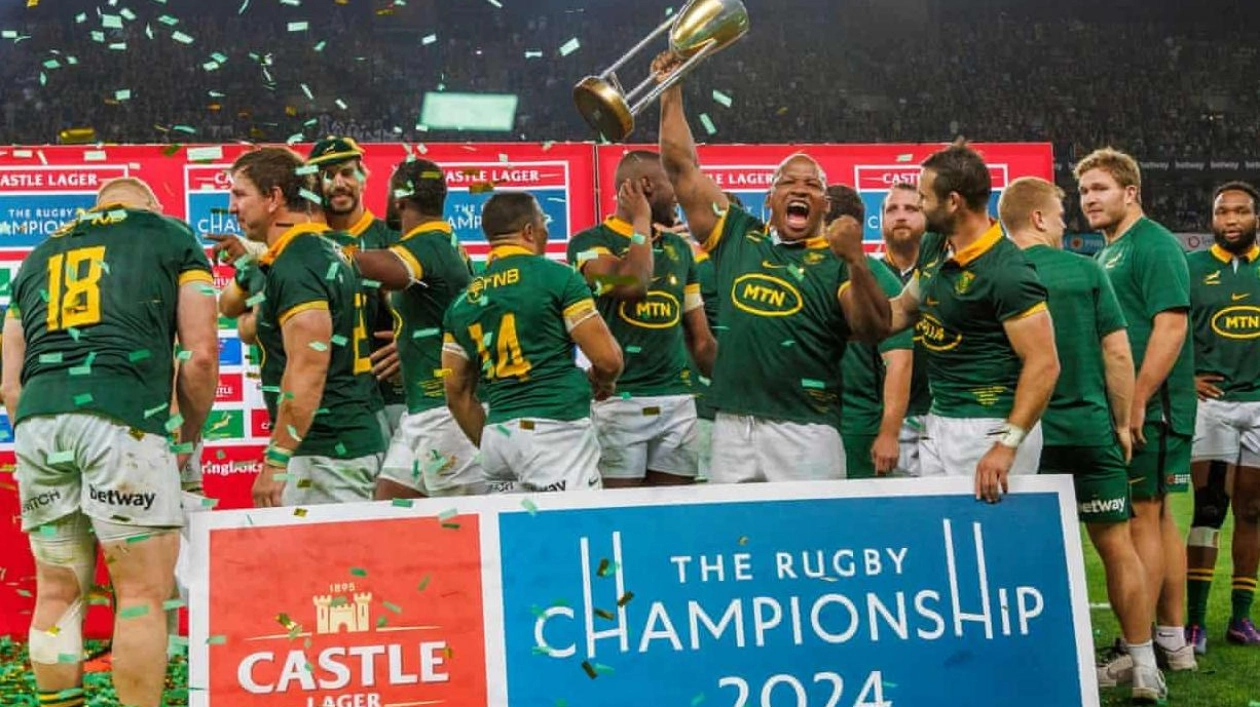Two World Cups, a British & Irish Lions series, and now the Rugby Championship. South Africa holds every major trophy available to a southern-hemisphere team. Does this put them on par with the all-conquering All Blacks of Richie McCaw and Dan Carter? It's a question best discussed over a second pint at the pub. However, its relevance underscores the evolution of this team under Rassie Erasmus and the potential heights they may yet achieve.
This 48-7 victory over Argentina showcased all the hallmarks of a classic Springboks performance. Their scrum overpowered the Pumas, with Ox Nché—famously quipping that “salads don’t win scrums”—dominating the set piece and securing a series of first-half penalties. Eben Etzebeth, with a record 128 caps for his country, started the day with tears in his eyes and was a towering presence throughout. Pieter-Steph du Toit, continuing his player-of-the-match form, controlled the breakdown and scored two of the team’s seven tries.
But it's what they did in other phases during the free-flowing first 40 minutes that should raise concerns across rugby. Unlike previous teams, this group can slice through defenses with surgical precision. In their annihilation of an Argentina side that defeated New Zealand in Wellington and inflicted a record loss on Australia, South Africa has signaled their intent for continued dominance in the upcoming World Cup cycle.
It helps that Cheslin Kolbe prowls the right wing. Possibly the only player who can rival Antoine Dupont as the best in the world, the diminutive winger with explosive speed is a constant threat. Then there's Manie Libbok at fly-half, a liability off the kicking tee but with deft hands and a knack for no-look cross-field kicks, challenging the traditional role of the South African pivot. These were once figures that tormented South Africans; now they are integral to the green and gold.
Admittedly, they faltered after the restart. Perhaps the team, which won last year’s World Cup with a hat-trick of single-point victories, simply eased off. Or perhaps the visitors deserve credit for fighting back into the contest. Like the Springboks, the Pumas have undergone a transformation under Felipe Contepomi, instilling a sense of belief in the squad. In the past, a half-time score of 27-7 would have led to a rout. Now, the blue and white jerseys see adversity as an opportunity, shifting the point of contact and introducing wide runners from the international sevens circuit.
These are the two main positives from a tournament with an uncertain future. As New Zealand and South Africa plan biennial bilateral series, there are fears that the Wallabies and Pumas may be sidelined in the pursuit of profits. With Australia hosting the Lions next year and both the men’s and women’s World Cups, and Argentina finding their footing under their new coach, this is a concerning trend for a sport that thrives in too few countries.
South Africa is certainly one of them. Etzebeth, speaking post-match, described rugby as a “religion” in his homeland. It's a place where those who wear the leaping antelope are revered, and victories on the field are woven into broader socio-political narratives. But winning remains the team’s primary objective. As Erasmus once said, they aim to “keep the main thing the main thing.” With a team that can still crush opposing packs but now includes players who can offload, sidestep, and distribute with precision, they are likely to secure many more victories before they disband. A European tour in November looms. A clean sweep of England, Scotland, and Wales would cement their status as the world’s top team.






